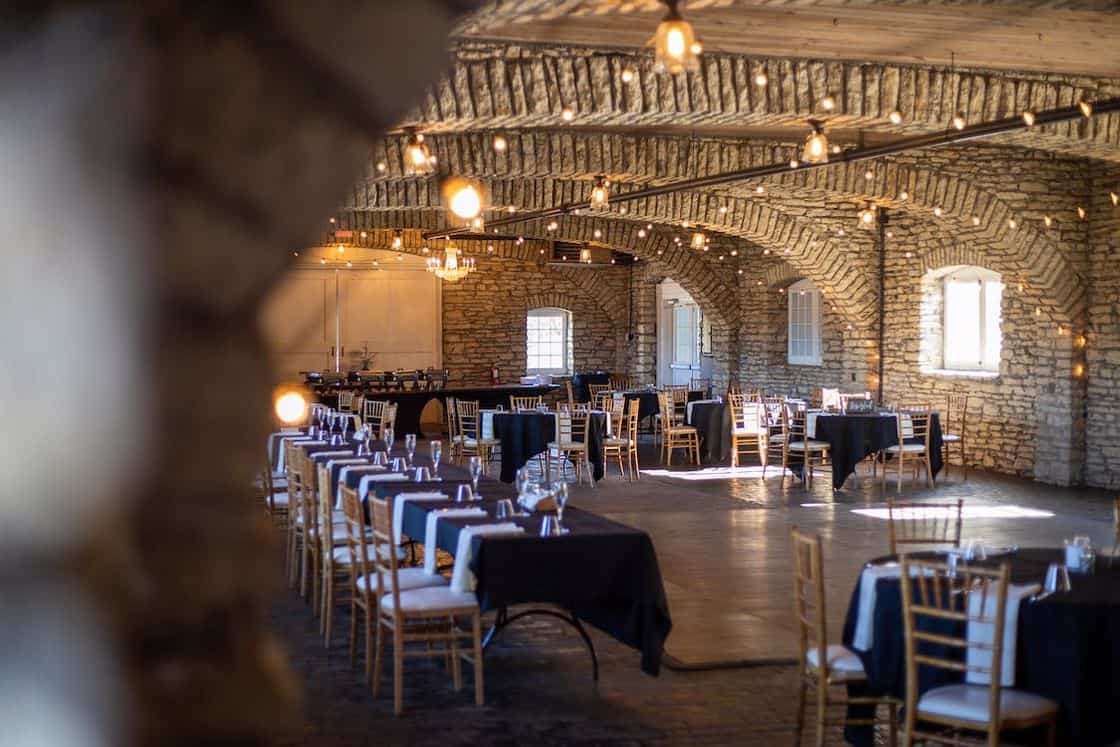Just How Event Production Works: A Comprehensive Take A Look At the Refine
Event production is a complex and structured process that requires careful preparation and execution. It begins with developing clear goals and recognizing the target audience. Each action, from budgeting to location option, plays a crucial function in making certain success. As the process unravels, different components need to align effortlessly. The nuances of this elaborate procedure usually go undetected. What are the essential phases that contribute to a remarkable event?

The Preliminary Drawing Board
When starting on event production, careful preparation is vital to guarantee an effective end result. The initial planning phase functions as the structure for all subsequent initiatives. Throughout this stage, event manufacturers must define the event's purpose and goals clearly. Identifying the target audience aids customize the experience and messaging, guaranteeing relevance and engagement.Producers need to additionally consider the event layout, whether it be in-person, online, or crossbreed, as this will certainly affect numerous logistical aspects. Picking a suitable day and place is essential, as it affects ease of access and availability.Furthermore, putting together a trusted team is fundamental for dividing responsibilities and streamlining communication. Developing a timeline with landmarks assurances all tasks are completed on time. This phase includes complete study, consisting of recognizing potential obstacles and devising approaches to alleviate threats. Eventually, a well-structured initial preparation phase sets the tone for a successful event production journey.

Budgeting and Resource Appropriation
In event production, efficient budgeting and resource allocation are critical for success - event production charlotte. Establishing economic parameters establishes the foundation for all subsequent choices, while source circulation methods ensure that every part of the event is sufficiently supported. With each other, these components aid preserve control over expenses and optimize making use of available resources
Developing Financial Parameters
Developing financial specifications is important to the success of any type of event production, as it establishes the structure for effective budgeting and resource appropriation. This process begins with defining the overall budget plan, which encompasses all facets of the event, consisting of place costs, catering, and advertising and marketing. By determining offered funds, event coordinators can prioritize expenses and allot resources accordingly. Additionally, it is necessary to conduct thorough marketing research to anticipate possible expenses and determine funding sources, such as sponsorships or ticket sales. Developing clear monetary parameters additionally aids in danger monitoring, enabling organizers to reserve contingency funds for unanticipated expenditures. Eventually, a distinct budget acts as a roadmap, leading the event production group towards achieving their goals while preserving financial control.
Source Distribution Methods
Effective resource circulation approaches are crucial for maximizing the impact of an occasion while adhering to budget plan constraints. Effective event production requires a careful strategy to budgeting and resource allowance. Planners need to prioritize vital aspects such as venue, event catering, and modern technology, guaranteeing that funds are designated to locations that improve attendee experience. A detailed budget must lay out anticipated expenditures and identify areas for prospective expense financial savings, such as discussing with suppliers or exploring sponsorship possibilities. Furthermore, tracking expenses throughout the planning procedure helps stop overspending. By utilizing tactical resource circulation, event producers can deliver a remarkable experience while keeping financial responsibility, ultimately adding to the general success of the event.
Location Option and Logistics
Picking the right location is vital to the success of any event, as it sets the phase for the overall experience. Location option involves reviewing numerous aspects, including capability, ease of access, and area. Coordinators have to think about the target market and the nature of the event, making certain the place lines up with the event's goals.Logistics play a significant function in this procedure, involving arrangements for seats, audiovisual devices, and catering solutions. An appropriate place must help with smooth circulation for guests and personnel, improving engagement.Additionally, evaluating possible places for features like auto parking, bathrooms, and emergency exits is crucial for safety and security and comfort. The timeline for protecting the venue is additionally crucial, as preferred locations might reserve rapidly - event production charlotte. Comprehensive preparation and prompt implementation can ultimately contribute to a smooth event experience, making venue option and logistics essential parts of successful event production.
Imaginative Principle Development
While the location sets the physical stage, creative concept growth shapes the event's identity and narrative. This process starts with recognizing the event's function and target audience, enabling event producers to create an engaging motif that resonates with participants. Conceptualizing sessions commonly consist of diverse viewpoints, promoting cutting-edge concepts that straighten with the event's goals.Once a style is established, visual aspects such as color palettes, signage, and decor are designed to improve the overall environment. Narration methods may additionally be integrated to produce an engaging journey for participants, ensuring an unforgettable experience. In addition, factors to consider relating to enjoyment, activities, and interactive elements are lined up with the selected principle, reinforcing the style throughout the event.Ultimately, efficient creative principle advancement assurances that every element of the event functions cohesively, leaving an enduring perception on guests and fulfilling the event's goals. This foundational job lays the foundation for subsequent planning and implementation phases.
Working together With Suppliers and Distributors
Successful event production pivots on effective partnership with suppliers and providers. Choosing dependable companions, working out agreements effectively, and guaranteeing prompt deliveries are vital actions in this procedure. Each of these elements adds substantially to the overall success and smooth execution of an occasion.
Picking Reliable Allies
How can event coordinators ensure a smooth production experience? Picking dependable partners is necessary in achieving this goal. Event planners should carry out thorough research to identify vendors and providers with a tested record of quality. This consists of examining referrals, reviewing portfolios, and evaluating customer feedback. Planners should prioritize partners that show professionalism and reliability, timely communication, and a determination to work together. Building strong relationships cultivates trust fund and makes it possible for fast analytic throughout the event. Furthermore, it is useful to select local vendors that recognize the location and regional logistics. Ultimately, a successful event rests on the harmony between planners and their companions, making certain that every facet of production runs smoothly and efficiently.
Negotiating Agreements Successfully
Efficient negotiation of agreements is a crucial step in the collaboration in between event coordinators and their vendors and suppliers. This procedure includes clear interaction of assumptions, deliverables, and timelines. Planners should perform extensive research on market rates and market requirements to establish a standard for negotiations. It is important to develop a collective atmosphere, urging open browse around this site dialogue concerning terms, prices, and potential backups. Planners need to likewise prioritize comprehending the vendor's capacities and restrictions to align their demands efficiently. Adaptability can cause mutually valuable contracts, cultivating long-lasting partnerships. Crafting well-defined agreements that include particular efficiency metrics can help ensure accountability, inevitably bring about successful event execution and satisfaction for all parties included.
Guaranteeing Prompt Deliveries
Timely deliveries are necessary for the smooth implementation of any event, needing diligent collaboration between organizers and their suppliers and suppliers. Efficient interaction is essential, as it helps establish clear expectations relating to distribution timetables, quantities, and particular demands. Coordinators usually develop detailed timelines to describe vital turning points, making certain all events continue to be aligned throughout the process. Regular check-ins with vendors can help identify potential delays early, allowing for proactive remedies. Furthermore, developing strong connections with trustworthy distributors cultivates depend on and liability, which can lead to much better service and prioritization. By prioritizing these collaborative initiatives, organizers can decrease interruptions, consequently improving the overall efficiency of event production and ensuring that all essential products and services arrive as intended.
Advertising And Marketing and Promo Techniques
While organizing an event, the success of advertising and promotion approaches can considerably influence presence and engagement. Reliable techniques often consist of a combination of electronic marketing, typical marketing, and grassroots outreach. Utilizing social media sites platforms permits real-time interaction and targeted advertising and marketing, reaching certain demographics effectively. Email advertising projects can even more involve potential participants with personalized material and reminders.Collaborations with influencers or sector leaders can likewise improve reliability and broaden reach. Developing engaging material, such as video clips or blogs, assists to create buzz and sustain rate of interest leading up to the event. In addition, leveraging early-bird discounts and special rewards can incentivize ticket purchases.Promoting through conventional networks, such as posters or neighborhood media, remains relevant, particularly in community-focused occasions. A thorough method that integrates numerous strategies guarantees optimum presence and engagement, ultimately contributing to the event's success and the development of a remarkable experience for attendees.
On-Site Execution and Administration
On-site execution and administration are crucial parts that determine the overall success of an event. Efficient sychronisation during the event ensures that all aspects line up with the intended schedule. Event managers oversee logistics, including vendor coordination, equipment setup, and guest services. Checking timelines and addressing any kind of unanticipated issues are basic for maintaining a smooth experience.The staff plays a significant duty, as experienced employees are liable for different tasks such as registration, information dissemination, and technical assistance. Communication amongst employee is important; it fosters a joint setting and allows fast resolution of challenges.Additionally, safety and security procedures need to be stuck to, guarding the well-being of all participants. Post-event evaluations are additionally component of on-site administration, supplying understandings for future improvements. By concentrating on these facets, event manufacturers can produce memorable experiences that fulfill or surpass participant expectations while attaining the event's goals.
Often Asked Concerns
Exactly how Do I Choose the Right Event Theme?
Choosing the ideal event style involves thinking about the target go to my site audience, event objective, and venue. Looking into current fads and gathering input from stakeholders can likewise inspire innovative concepts that resonate and develop a memorable experience.

What Are Common Blunders in Event Production?
Usual blunders in event production commonly consist of Your Domain Name insufficient planning, poor interaction amongst employee, spending plan mismanagement, disregarding to consider the audience's needs, and failing to perform a thorough post-event analysis for future renovations.
Exactly How Can I Measure Event Success?
To gauge event success, one can examine guest complete satisfaction, engagement degrees, budget plan adherence, and post-event feedback. Trick performance indications, such as ticket sales and social networks communications, likewise provide beneficial insights into total efficiency.
What Should I Do if It Moistens the Event Day?
In case of rain on the day, the coordinator ought to apply contingency strategies, such as safeguarding camping tents or relocating activities inside. Interaction with attendees concerning changes is essential to ensure a smooth experience despite weather condition challenges.
Exactly How Can I Guarantee Participant Engagement During the Event?
